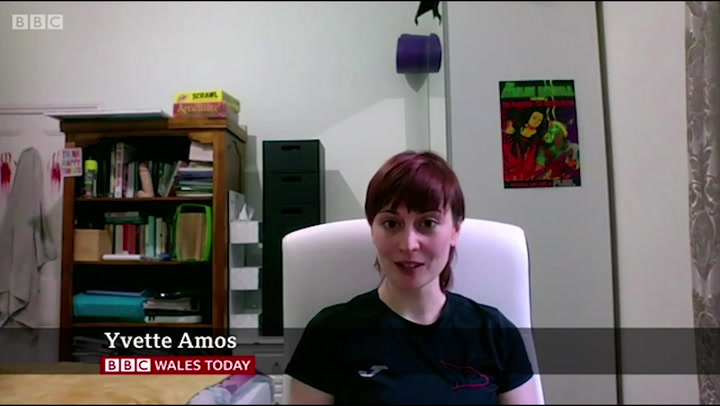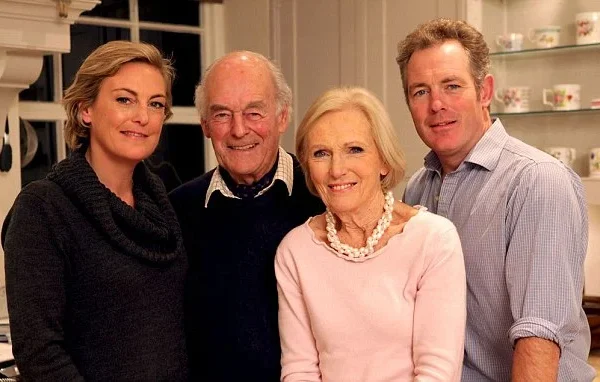Yvette Amos became an unexpected online sensation after her appearance on BBC Wales Today. She joined the programme via a Zoom call to share her experience with unemployment during the pandemic. While the discussion was serious and insightful, what truly captured the public’s attention was an unplanned detail in her background, which sparked widespread online conversations.
The moment quickly turned Yvette Amos into a viral personality. Social media users from across the UK and beyond shared screenshots, jokes, and memes highlighting the surprising object behind her. Her story demonstrates how ordinary people can become overnight internet sensations, simply by being themselves, even in seemingly ordinary situations like a live interview.
The Viral Moment: What Happened During the BBC Wales Interview
During the live interview, Yvette Amos appeared professional and articulate, discussing the challenges of unemployment. However, viewers couldn’t help but notice a highly unexpected item in her background. The humorous incident overshadowed the discussion, as social media immediately picked up on it and the clip quickly went viral.
The clip of Yvette Amos spread rapidly across platforms such as Twitter, Reddit, and Facebook. People were fascinated not only by the object but also by Yvette Amos’s calm and composed demeanor. Her unintentional viral fame became a cultural talking point, reflecting the unique ways live video calls can introduce unplanned entertainment moments to audiences worldwide.
Public Reaction: From Shock to Humour
Public reaction to Yvette Amos’s viral moment was overwhelmingly humorous. Many viewers found the situation funny rather than embarrassing, and the British sense of humour played a large role in how the story was received. Memes, jokes, and playful comments flooded social media, making Yvette Amos a trending topic within hours of the broadcast.
Media outlets across the UK, including NDTV, The Independent, and Grazia Daily, reported the incident. The coverage highlighted how quickly ordinary moments can gain attention online. Yvette Amos’s story resonated with audiences because it was relatable – almost everyone working from home has experienced unexpected disruptions during video calls.
Yvette Amos’s Response and Life After the Viral Incident
Yvette Amos embraced her sudden fame with humour and grace. On Instagram, under the handle @officialyvetteamos, she acknowledged the viral moment with captions like “15 Minutes Famous!” Her playful attitude and willingness to laugh at herself earned her admiration from fans and followers.
The incident also sparked discussions about how viral moments can impact personal and professional life. Yvette Amos continues to be remembered for the clip, but she has used the experience positively, showing how authenticity and a sense of humour can turn potentially awkward situations into memorable and empowering experiences.
The Broader Lesson: Privacy, Online Culture, and Unplanned Fame
The viral moment of Yvette Amos highlights the unpredictable nature of online culture. In an era dominated by video calls and social media, even small, private moments can become globally shared content. Yvette Amos’s experience reminds us that internet fame can arise unexpectedly, and sometimes without any deliberate intention.
Her story also underscores the importance of digital privacy. While Yvette Amos handled her moment gracefully, it demonstrates how everyday life is increasingly exposed to online scrutiny. The incident offers a lesson about being mindful of surroundings during live broadcasts while also embracing the spontaneity that makes such moments memorable.
Media Ethics and the Role of News in Viral Stories
The coverage of Yvette Amos’s interview raises questions about media responsibility. While the story was humorous and widely shared, it shows how easily personal moments can be amplified. UK media outlets, including BBC Wales, reported the story respectfully, balancing public interest with sensitivity.
Yvette Amos’s case is a reminder of the ethical challenges in reporting viral stories. Media attention can rapidly turn ordinary individuals into public figures, often without their consent. The story illustrates the need for responsible reporting while reflecting the public’s fascination with spontaneous and relatable human moments.
Conclusion: The Lasting Legacy of Yvette Amos
Yvette Amos’s viral BBC Wales appearance will be remembered as a remarkable example of how ordinary moments can capture global attention. Her story reflects the unpredictable nature of the internet, where humour, authenticity, and spontaneity often resonate more than planned media performances.
From an everyday BBC guest to a viral sensation, Yvette Amos exemplifies how individuals can unexpectedly enter the public eye. Her experience serves as a reminder that digital fame can happen to anyone, turning even minor moments into stories that spark laughter, conversation, and lasting cultural relevance.
FAQs About Yvette Amos
Who is Yvette Amos?
Yvette Amos is a woman from Wales who became an internet sensation after a humorous moment during her BBC Wales interview went viral.
What happened during Yvette Amos’s BBC interview?
During a live Zoom segment, an unexpected item appeared in her background, sparking widespread online discussion and viral sharing of the clip.
Did Yvette Amos respond to the viral moment?
Yes, Yvette Amos embraced the attention with humour, sharing posts on Instagram and engaging with followers about the incident.
Why did Yvette Amos go viral?
Her story combined relatability, humour, and surprise, making it the perfect viral moment during a time when many were working from home.
What can people learn from Yvette Amos’s experience?
Yvette Amos’s experience highlights the importance of being aware of online surroundings and shows that humour and authenticity can turn unexpected incidents into memorable moments.
You may also read: Creative Philosophy: How Garfield Hackett Blends Art, Food, and Culture







